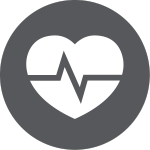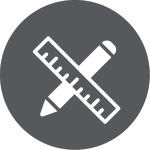

![]()
Build our shared health history.
Blockchain, or distributed ledger technology, has been proposed as a solution to solve some of health care’s major challenges, including: identity, data liquidity, supply chain, privacy, care coordination and more. And because of its distributed architecture, there is the potential to build a system that’s truly patient-centered.
Join us Wednesday September 14th, 2016 at Stanford University for an Everyone Included™ co-create-athon. Here you’ll learn new skills, use new tools, and help create new solutions that could build a new history of health.
- Solve the problems that matter most to you – Bring your problems to the conversation, and leave with applicable solutions to the problems that matter the most to you.
- Discover a new framework – Find out how to implement block chain solutions in your work, and discover how you can contribute to a diverse team by working together with patients, caregivers, researchers, technologists and designers.
- Experience shared decision making – Experience the power of Everyone Included™ co-creation by working together with all health care stakeholders to share decisions in the creation process to produce more innovative and creative solutions to problems that matter most in health care research.
- Learn from internationally-renowned experts – Get advice from experts in block chain, research, and Everyone Included™ co-create and team leadership.
Block chain is a data structure that allows the creation of a ledger of digital transactions that can be shared among a distributed network of computers. Cryptography allows each participant on the network to add to the ledger in a secure manner. These manipulations can be accomplished anonymously without using a central source of authority for the transaction. Block chain enables trusted anonymous data sharing between individuals and is the technology underlying the online currency, Bitcoin.
What are some advantages to block chain technology in health care research?
- Blockchains can enable individuals and organizations to share access to their data and networks while maintaining trust, security and data integrity.
- People can easily share their health data anonymously with the world’s researchers to help find cures and advance precision medicine.
- Researchers can quickly and cheaply find and enroll patients for their clinical studies and in some cases even complete their entire research project using online datasets.
- People can opt-in to anonymously receive offers to participate in new clinical trials or treatments.
- Researchers can aggregate research data across all the clinical trials a person has completed to gain unique insights not possible with a smaller data set.
Technical
- Block chain experts
- Computer Science students
- Software Engineers
- Designers
Non-Technical
- Patients
- Health care providers
- Clinicians
- Caregivers
- Patient advocates
- Educators
- Researchers
How might the blockchain optimize and secure precision medicine research collaboration between participants and researchers?
President Obama launched the Precision Medicine Initiative last January in order to ignite advances that will disrupt traditional models of research and clinical care. What exactly is Precision Medicine? The White House initiative defines precision medicine as an innovative approach that takes into account individual differences in genes, environment and lifestyle, to target specific treatments and advance scientific research to keep people healthy.
Precision Medicine will require unprecedented collaboration between participants and researchers to drive innovation in medical research. At the heart of this collaboration is the secure and anonymous sharing of health data to empower patients to easily donate their data to researchers in a trusted and secure manner, and for researchers to easily and securely recruit people into their studies and return back valuable information to participants.
At the heart of this unmet need is blockchain, a technology that makes it possible for patients to easily share their data anonymously with researchers and to be anonymously contacted again in the future if their data indicates they would be candidates for other relevant research studies—all done in a secure fashion.
our everyone included™ community

PATIENTS, CAREGIVERS, ADVOCATES
Patients, caregivers and advocates are vital stakeholders in Everyone Included™ events. As end-users of health care and research innovations, their input as co-creators at the inception of the creation process helps Everyone Included™ projects focus on problems that matter most in health care and solutions can be implemented successfully in the real world.

HEALTH CARE PROVIDERS + RESEARCHERS
Health care providers and researchers are vital drivers of precision medicine research. Inception of research ideas, recruitment of participants, analysis and publication of research findings and translation to clinical practice are all aspects of research that health care providers and researchers can help accomplish.

DESIGNERS + DEVELOPERS
Designers and developers are key stakeholders who help create and implement health care solutions. Working as members of a diverse co-creation team, designers help establish clear problem statements, identify needs and co-create solutions. Developers provide key technical insights for creating actionable outcomes and solutions for the team.

